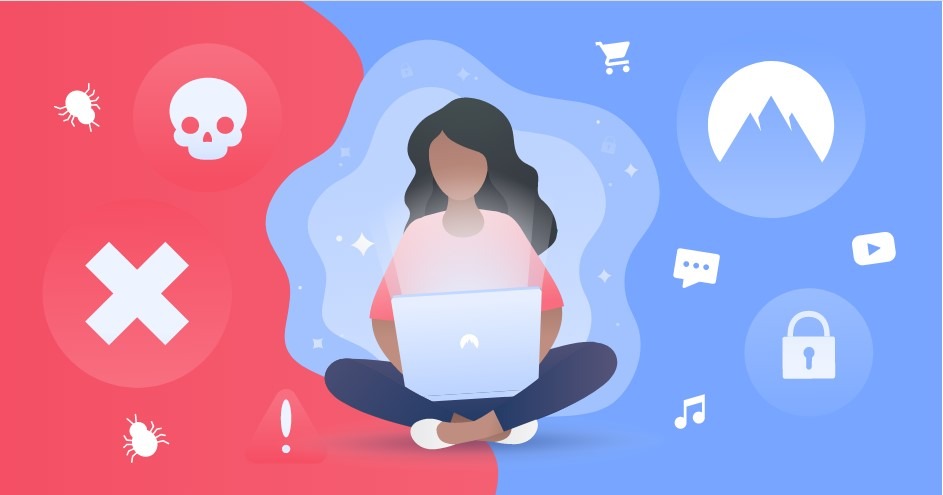In an era where mobility and connectivity are paramount, accessing the internet via public networks has become commonplace. Coffee shops, airports, and hotels offer free Wi-Fi to their customers, enticing us with the convenience of staying connected. However, this convenience often comes with significant security risks. After various experiences and research, I have concluded that using a VPN is essential when connecting my iPhone to public networks. Here’s why I prioritize security when using my mobile device in such environments.
✅ Current deal: 🔥 Get NordVPN with up to 75% OFF! 🔥

Understanding Public Wi-Fi Risks
Public Wi-Fi networks are notoriously insecure. Anyone within range can potentially intercept the data transmitted over these networks. This means personal information, passwords, and credit card numbers can easily be accessed by attackers. I have learned from firsthand experiences that these vulnerabilities should not be taken lightly.
Vulnerabilities of Public Networks
- Eavesdropping: Attackers can use simple tools to capture unencrypted data.
- Man-in-the-Middle Attacks: Cybercriminals can insert themselves between you and your connection to steal information.
- Session Hijacking: This involves taking over a user’s active session to access sensitive data.
- Malware Distribution: Some networks may even allow attackers to distribute malware onto devices connected to them.
It’s clear that without adequate protection, my iPhone becomes a target for opportunistic attackers.
The Role of VPNs
A Virtual Private Network (VPN) creates a secure tunnel for my online activities. When I connect my iPhone to a VPN before accessing public networks, I enjoy several advantages that safeguard my information.
How VPNs Enhance Security
- Data Encryption: VPNs encrypt data transmitted over the public network, making it incomprehensible to anyone attempting to intercept it.
- Anonymity: My IP address is masked, ensuring that my online activities are harder to trace back to me.
- Secure Connection: A VPN helps prevent man-in-the-middle attacks, as it verifies both endpoints of the connection.
- Access to Content: Sometimes, content is geographically restricted. A VPN allows me to access such content securely.
Given these capabilities, it’s easy to see why I consider a VPN indispensable whenever I connect to a public Wi-Fi network.
Choosing the Right VPN
Not all VPN services are created equal. I have learned that choosing a reliable VPN provider can significantly influence my online security. Here are some factors to consider:
Key Features to Look For
- Strong Encryption Protocols: Look for VPNs that use AES-256 encryption, which is considered highly secure.
- No-Log Policy: Choose a provider that does not log your activities to ensure complete privacy.
- Speed and Performance: Since I frequently stream videos or engage in video calls, I require a VPN that maintains a fast connection.
- Multi-Device Support: A VPN should offer applications for various platforms, so my security is consistent across devices.
- User-Friendly Interface: I prefer a VPN that is straightforward to set up and use.
By focusing on these features, I can ensure that I am making a choice that protects my information and enhances my browsing experience.
✅ Current deal: 🔥 Get NordVPN with up to 75% OFF! 🔥
Tips for Using a VPN on Public Networks
Implementing a VPN is just one part of staying secure on public networks. I have compiled a series of practical tips that further enhance my online safety:
- Connect to the VPN Before Joining the Network: Always initiate the VPN connection before connecting to any public Wi-Fi.
- Turn Off Sharing Features: This helps to limit exposure and potential risks by preventing file and printer sharing.
- Regularly Update Your Device: Keeping my iPhone’s software up to date reduces the risk of vulnerabilities being exploited.
- Use HTTPS Websites: Ensure the websites I visit use HTTPS, which adds another layer of security.
- Avoid Sensitive Transactions: I refrain from banking or shopping online while connected to public networks whenever possible.
- Consider Two-Factor Authentication: Using two-factor authentication adds an additional layer of security to my accounts, making unauthorized access difficult.
These best practices help supplement the security measures provided by the VPN and further fortify my online presence.
Conclusion
With the rise of mobile technology, the way we connect to the internet has evolved. While public Wi-Fi offers undeniable convenience, its inherent risks cannot be ignored. I have determined that using a VPN on my iPhone is crucial for securing my personal data against potential threats. The ability to encrypt data, protect my identity, and maintain a secure connection gives me peace of mind as I navigate the online landscape.
In navigating public networks, I prioritize my security by being proactive and well-informed. By choosing a robust VPN, applying practical tips, and staying vigilant, I ensure my online presence remains safe and secure. The digital world may be fraught with risks, but with the right tools and practices, I can confidently explore it without compromising my safety.
Affiliate Disclosure: By clicking on our links, we may earn commissions at no additional cost to you.